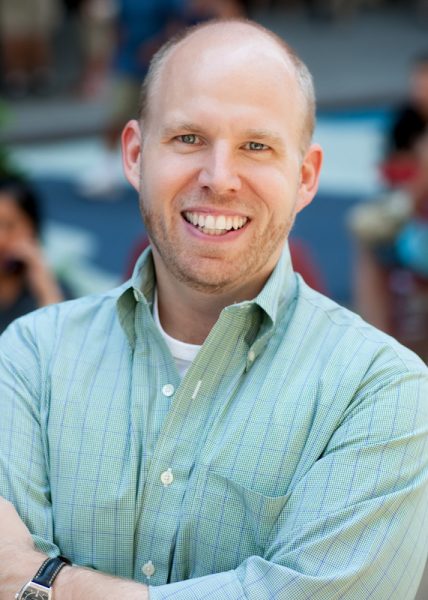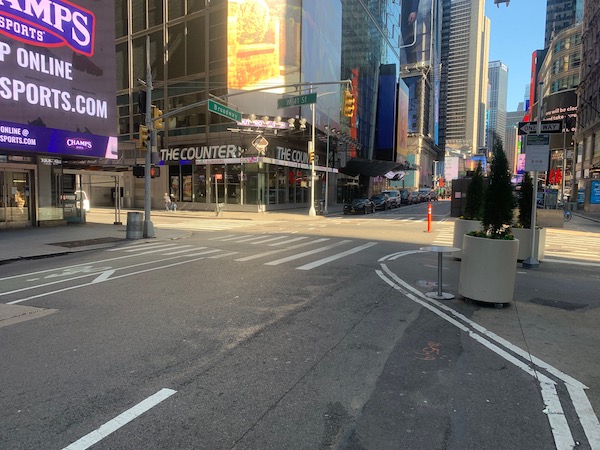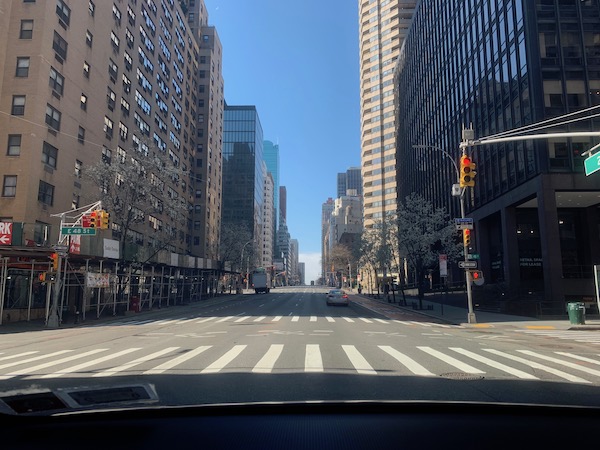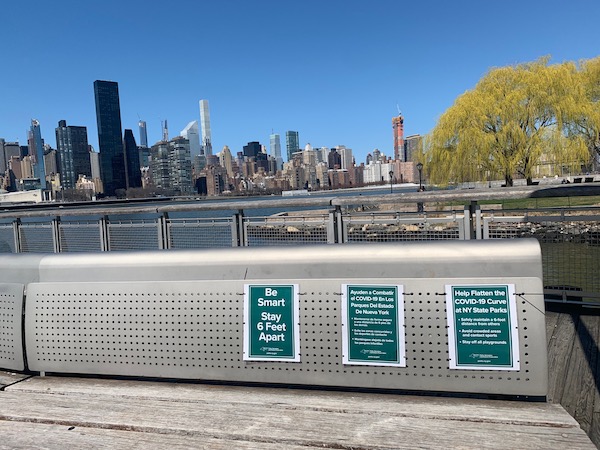If you’ve been reading the posts this week on the Catching Health blog, you might have noticed a trend other than how people are coping with the COVID-19 pandemic. It’s that many of the people who’ve been sharing their stories are my relatives! Who do you ask first when you need something? Your loved ones — the ones you think would be most likely to say yes. Like Barry, my husband, and Diana, my niece. Today, it’s my nephew Jason, who lives with his family in New York City. I can’t even imagine what it must be like right now for people living there. Jason graciously agreed to give us a glimpse into his family’s world.
It has been a whirlwind couple of weeks in the midst of this COVID-19 crisis. My family and I are here in the new epicenter and here are some observations and tips to cope with the new levels of stress.
Build & maintain routines
While I have worked from home for the last decade, this type of isolation and working condition is new to the family. It definitely took about ten days to build, but we eventually installed a new family routine. My fourteen-year-old daughter has a modified school schedule, so we supplemented that with things like an hour of creativity, an hour of fictional reading, and an hour of exercise to fill out the days. My partner has shifted her work to the kitchen table, enjoying the frequent video chats with co-workers and instituting virtual workouts in the living room. Personally, I have tried to stick to my normal work from home schedule. I haven’t changed my bedtime or the time I get up in the morning, which has always been early. I try to limit the news to three sprints during the day, 15 minutes each. This allows me to read news and listen to the radio in early AM, around noon for lunch and the last thing before shutting down for the night. Information overload is something we try to avoid.
Being extra social (but distant)
While we are all stuck inside this apartment, we have taken to a lot of extra calls and chats with family and friends. Not only does this help people who are far away and worried about what is going on locally, but talking through the current situation, sharing ideas, and maintaining social norms is very helpful. The family calendar has gone from outings to virtual calls, dates, cocktails, and family trivia. Having scheduled things to look forward to in the evening, or on the weekends has definitely helped with the social distress especially since so many future events have been cancelled.
Prepared not panicked
The hardest part of this isolation has certainly been the mental anguish and heightened levels of panic. Each day the news reports higher and higher numbers in our state and city. Death tolls are climbing and the stress to the hospital systems is real. As New Yorkers we have been through some tough times including 911 and Sandy both of which tried to bring this city to its knees. COVID-19 brings a new element which is the slowness of the attack. It is like knowing there is a tsunami headed towards your coast, but not knowing if it will hit in ten or thirty-five days. Will we be ready? How many will die? We have found the best thing to do is to be very clear, open, and honest about our fears, to talk them through with family and friends. The key is to prepare for the situation at hand, but not panic and do things that will hurt others. This includes not hoarding food or supplies, following the strict social distancing guidelines, and not downplaying the seriousness of this pandemic.
Projects not problems
They say in times of crisis that we lean into our foundational habits and as a longtime Getting Things Done (GTD) practitioner I can attest to that. During this outbreak, GTD has brought me back to one of David Allen’s best concepts, which is that there are only projects, not problems. The idea is that everything in your life, good or bad, can be treated like a project in GTD. A GTD project is something that has an outcome, a next physical, visible action, and is reviewed weekly during the Weekly Review. For me, this has brought COVID-19 into my trusted system and allowed me to capture tasks against it. Those have ranged from “Get games out of closet” to “Reschedule plans for next month.” I have used the extra time at home to do lots of little apartment projects that have been on hold, but now seem appropriate. Staying productive has had a very positive effect on my mental health and stress.
This crisis is certainly going to get way worse before it gets better, as it rolls quickly across the United States and the World. If you are not sheltering in place now, you soon will be, so reach out to me @JasonMAtwood as you come up with your own ways to cope in these terrible times.
Jason Atwood
Scenes of New York City
Thank you, Jason. Stay safe.
In case you were wondering, Jason considered writing this post a GTD project, and he met his deadline with time to spare.






It’s good to hear some positive things coming out of NYC and from such a personal perspective. One thing that I’ve tried to stop doing (with mixed success) is having COVID-19 news be the last thing I consume before going to sleep. I’ve also started taking melatonin before bed, which helps to ease my body and mind when I’m feeling especially anxious.
Thanks for your comment, Jen. We do need positive news, don’t we? Yesterday, I deleted all the news apps from my phone so I wouldn’t be checking them all throughout the day (and at 2:30 in the morning.) Like you, I’m trying to be more selective. Sleep tight.
Reading about your brother’s story, parallels to what my son & wife and their 2 children are doing. They are living in a tiny home in West Philly and they have schedules for each family member, they seem to be coping. My youngest granddaughter has a weekly gymnastics lesson via zoom, she is full of energy and had to have more structure added to her day.